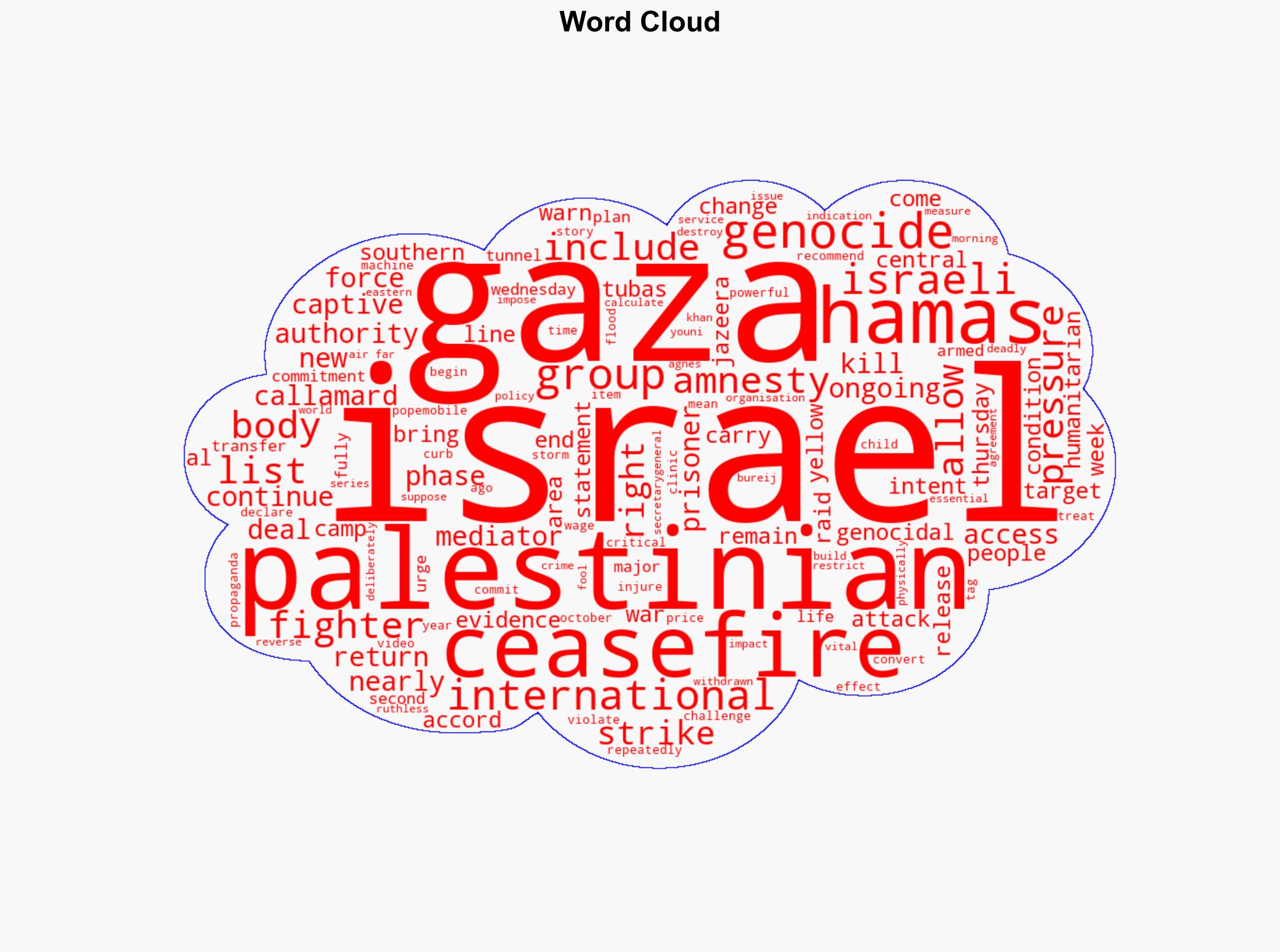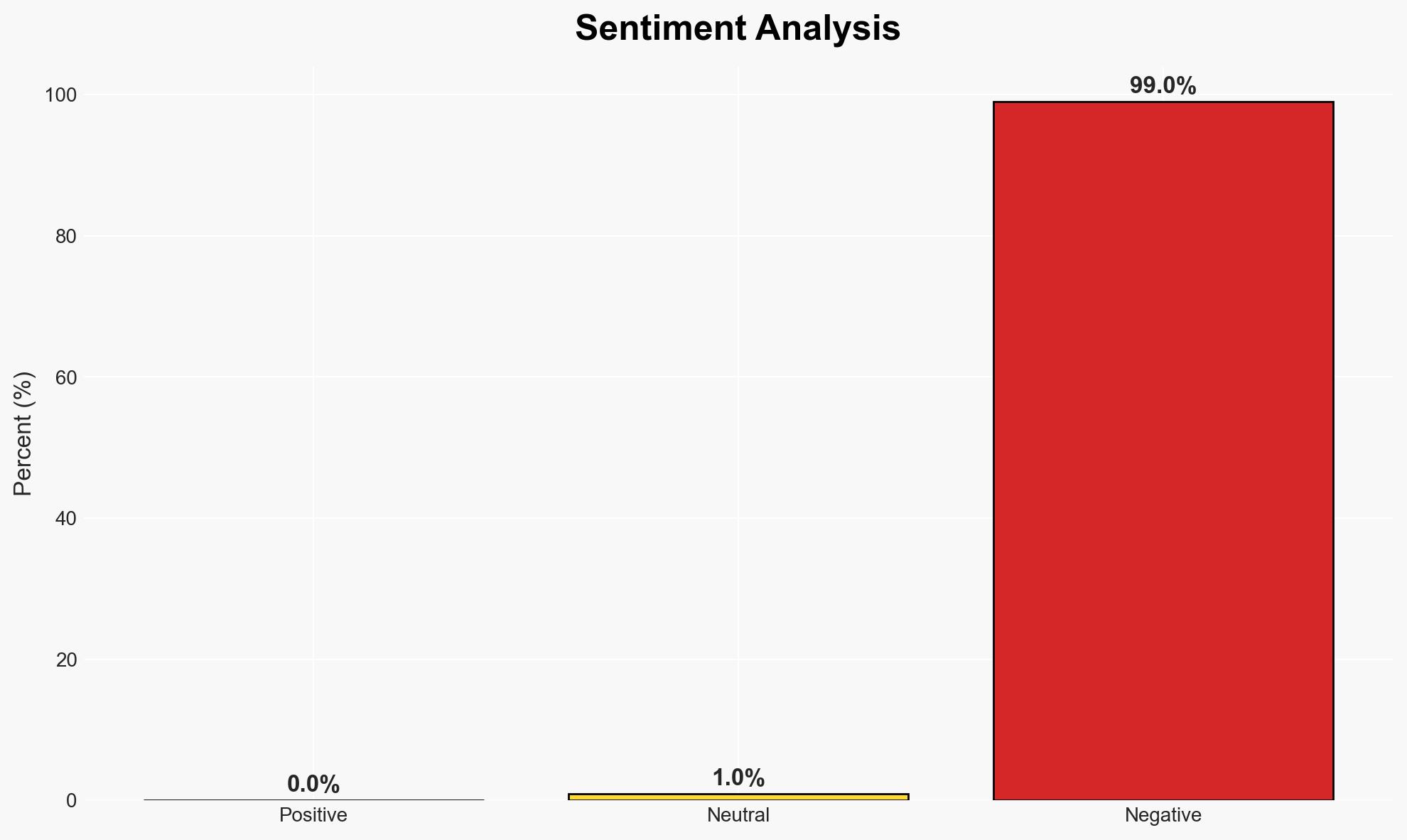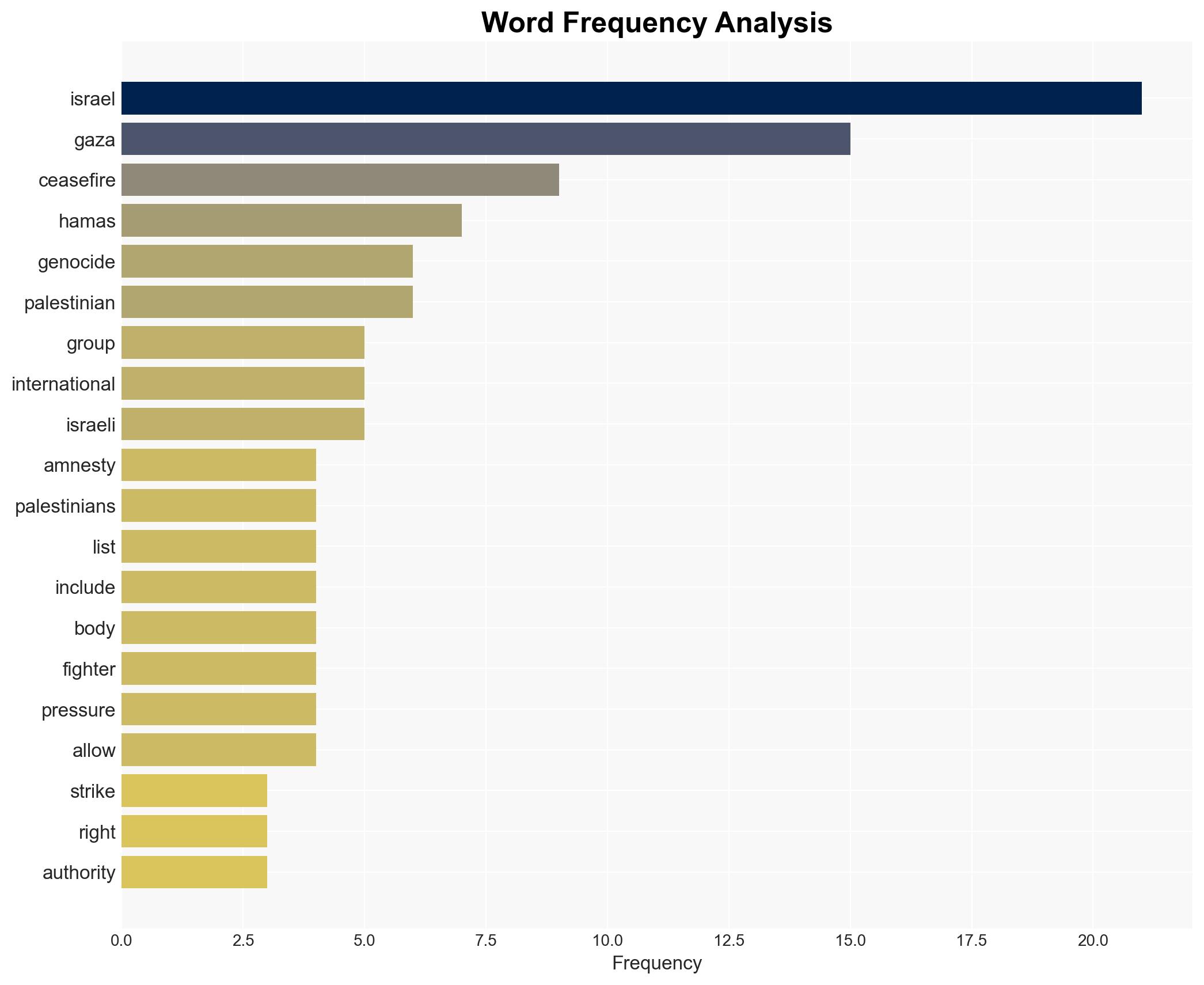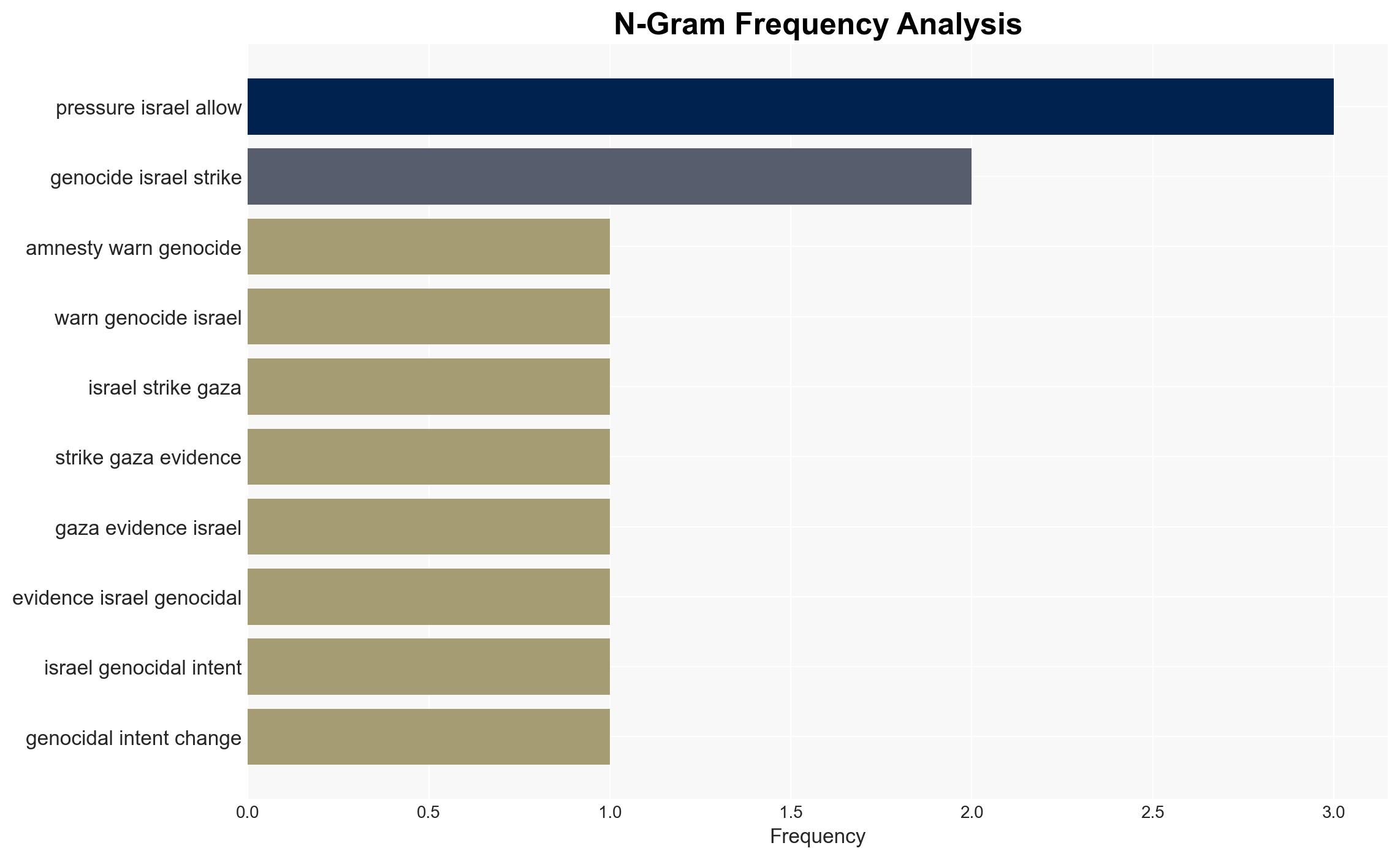Israel intensifies airstrikes in southern central Gaza, raising concerns over humanitarian impact and potenti…
Published on: 2025-11-27
AI-powered OSINT brief from verified open sources. Automated NLP signal extraction with human verification. See our Methodology and Why WorldWideWatchers.
Intelligence Report: Israel escalates aerial assault of southern central Gaza past yellow line
1. BLUF (Bottom Line Up Front)
The Israeli military has intensified its aerial operations in southern central Gaza, reportedly violating a ceasefire agreement. This escalation raises concerns of potential genocidal intent as claimed by Amnesty International, impacting regional stability and humanitarian conditions. The overall confidence level in this assessment is moderate due to incomplete data and potential bias in sources.
2. Competing Hypotheses
- Hypothesis A: Israel’s actions are a strategic military response to perceived threats from Hamas and other militant groups, with the aim of neutralizing these threats. This is supported by the reported targeting of areas with known militant activity. However, the repeated violations of ceasefire agreements contradict this hypothesis.
- Hypothesis B: Israel’s operations are part of a broader strategy to exert control over Gaza, potentially with genocidal intent as suggested by Amnesty International. This is supported by the scale and intensity of the strikes and the reported impact on civilian infrastructure. The lack of direct evidence of intent and the complex geopolitical context contradict this hypothesis.
- Assessment: Hypothesis A is currently better supported due to the historical context of Israeli military operations focusing on counter-terrorism. Key indicators that could shift this judgment include evidence of systematic targeting of civilian infrastructure or explicit statements of intent from Israeli authorities.
3. Key Assumptions and Red Flags
- Assumptions: The Israeli military’s primary objective is counter-terrorism; ceasefire agreements are intended to be upheld by both parties; Amnesty International’s reports are based on verified data.
- Information Gaps: Detailed intelligence on the specific targets and objectives of Israeli strikes; independent verification of Amnesty International’s claims; insights into internal Israeli decision-making processes.
- Bias & Deception Risks: Potential bias in reports from Amnesty International and other NGOs; risk of misinformation from both Israeli and Palestinian sources; possible strategic deception by involved parties.
4. Implications and Strategic Risks
The escalation in Gaza could lead to increased regional instability and further deterioration of humanitarian conditions. It may also influence international diplomatic relations and impact ongoing peace negotiations.
- Political / Geopolitical: Potential for increased tensions between Israel and neighboring countries; impact on international diplomatic efforts to mediate peace.
- Security / Counter-Terrorism: Heightened threat environment with potential for retaliatory attacks by militant groups; increased military operations in the region.
- Cyber / Information Space: Potential for increased cyber operations targeting Israeli and Palestinian digital infrastructure; intensified information warfare and propaganda.
- Economic / Social: Further strain on Gaza’s economy and social services; increased displacement and humanitarian needs.
5. Recommendations and Outlook
- Immediate Actions (0–30 days): Increase intelligence gathering on the ground; engage with international partners to mediate ceasefire compliance; monitor humanitarian conditions closely.
- Medium-Term Posture (1–12 months): Strengthen diplomatic channels for conflict resolution; support capacity-building for local governance in Gaza; enhance regional security cooperation.
- Scenario Outlook: Best: Ceasefire holds and peace negotiations resume; Worst: Full-scale conflict resumes with significant civilian casualties; Most-Likely: Continued sporadic violence with intermittent ceasefire violations.
6. Key Individuals and Entities
- Amnesty International
- Israeli Defense Forces (IDF)
- Hamas
- Palestinian Islamic Jihad
- Agnes Callamard (Amnesty International Secretary-General)
- Hazem Qassem (Hamas Spokesman)
- Not clearly identifiable from open sources in this snippet.
7. Thematic Tags
National Security Threats, military escalation, ceasefire violations, humanitarian crisis, geopolitical tensions, counter-terrorism, information warfare, regional stability
Structured Analytic Techniques Applied
- Cognitive Bias Stress Test: Expose and correct potential biases in assessments through red-teaming and structured challenge.
- Bayesian Scenario Modeling: Use probabilistic forecasting for conflict trajectories or escalation likelihood.
- Network Influence Mapping: Map relationships between state and non-state actors for impact estimation.
Explore more:
National Security Threats Briefs ·
Daily Summary ·
Support us





